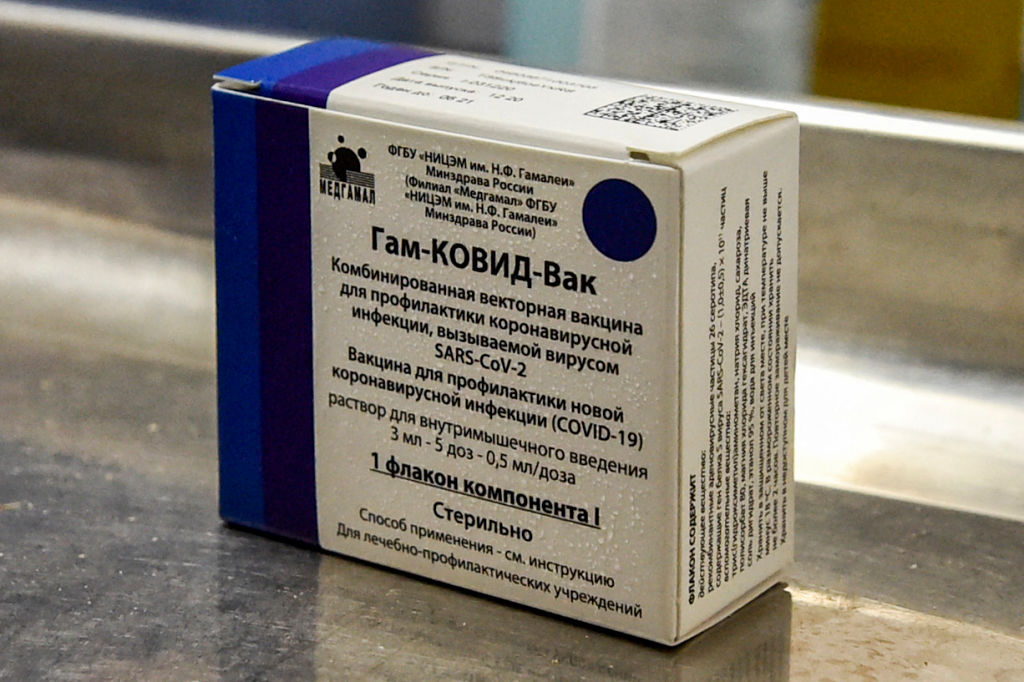ADF STAFF
Despite boasting about the affordability of its Sputnik V COVID-19 vaccine, Russia will charge the African Union three times more than it’s paying for the Oxford-AstraZeneca and Novavax vaccines, according to a recent report by the Financial Times.
In a November 2020 press release, the CEO of the Russian sovereign wealth fund that markets the vaccine abroad lauded Sputnik V for having “a price that is two times lower than that of other vaccines with similar efficacy rate.”
African Union receipts say otherwise.
The AU’s vaccine procurement team announced February 19 that Russia had proposed a financial package of 300 million doses at $9.75 each. Two doses are required per person.
Citing sources familiar with AU vaccine procurement, the Financial Times reported February 25 that AstraZeneca and Novavax will charge the AU $3 a dose, while Pfizer will charge $6.75 a dose, and Johnson & Johnson will charge $10 for its single-dose vaccine.
From the start, Russia’s vaccine development was seen as rushed and met with skepticism.
President Vladimir Putin declared in mid-August 2020 that Russia had become the first in the world to approve a COVID-19 vaccine. But scientists condemned that decision because large-scale trials to test the vaccine’s safety had not been completed, and early trials included just 76 participants in two hospitals.
“This is a reckless and foolish decision,” University College London geneticist Francois Balloux said at the time in a statement. “Mass vaccination with an improperly tested vaccine is unethical.”
Others questioned whether the motivation to rush the vaccine was to gain political influence.
“Putin is using it to bolster a very tarnished image of Russia’s scientific and technological prowess,” Georgetown University Professor Lawrence Gostin told The Associated Press. “He’s using it for geostrategic purposes in areas where Russia would like to have spheres of influence.”
Africa is in dire need of vaccine doses to reach its goal of vaccinating 60% of the continent’s population of about 1.3 billion.
More than 3.5 million cases of COVID-19 have been confirmed on the continent, and nearly 89,000 people have died, according to the January 28 statistics from the Africa Centres for Disease Control and Prevention (Africa CDC).
In mid-February, the first AstraZeneca doses arrived in Africa when Ghana received 600,000 doses from COVAX, a global initiative that distributes free vaccines to 92 middle- and low-income countries, including several in Africa. COVAX is paying $3 per dose for the vaccine, which is manufactured in India.
Issues more serious than price have surfaced with Sputnik V’s composition.
It’s a viral vector vaccine — technology that scientists have been using since the 1970s — that uses a harmless human adenovirus to provoke the immune system. But experts say manufacturers cannot guarantee stable output because biological ingredients create inconsistency in the quality of the finished product.
Compounding these problems are a decided lack of information and transparency by Russia.
A senior European Medicines Agency official on March 7 urged European Union members not to grant approval for Sputnik V while the agency reviews questions about the vaccine’s safety and effectiveness.
“We need documents that we can review. We also don’t at the moment have data … about vaccinated people,” Christa Wirthumer-Hoche said on Austrian broadcast company ORF. “It is unknown. That’s why I would urgently advise against giving a national emergency authorization.”

